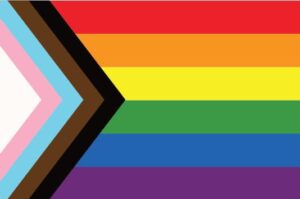Have you considered “gig work”? Did you know that “gig workers” now represent 13% of Canadian adults and that 37% of Canadian businesses employ gig workers? Gig workers are also known as temps, temporary workers, contractors, or platform workers and they’re expanding into several industries.
Tom Gorman’s “Multipreneuring”, which was published in 1996, forever changed the way I worked and looked at work. Barely halfway through my 20s, I had been “downsized” or “right-sized” out of 2 careers and I was going onto my third. The world was changing fast, technology was a run-away train and everything my “Baby Boomer” parents had taught me about work and a career path was becoming less relevant. Multiprenuering provided techniques and insight on how to develop multiple sources of income and pursue multiple careers. Although this concept was quite revolutionary for the mid-90s, it seems almost quaint now. And 25+ years later, we are seeing the impact and opportunities of the “gig economy”.
So… What is the gig economy? Well, it’s not multi-level marketing. It’s temporary, flexible jobs where the workers are freelancers or independent contractors. These are not full-time permanent positions. It’s also important to note that the gig economy is not just about doing menial tasks or driving an Uber; there are many well-paying freelance opportunities.
It’s not for everyone, you have to be organized and disciplined. Many gig workers probably spend an average of 8 – 10 hours per day working on various projects but they may also be reaching their financial goals sooner so many consider it worth the investment of time and energy. Speaking of finance, you need to figure out how you will invoice for your services, how to report your sources of income, will you need to collect GST, take into consideration insurance, a business license, and how will you collect payment from clients.
On the plus side, Gig workers set their own hours, have no employees, and the only equipment most require are a laptop, an internet connection, phone and occasionally a car.
Here are a few examples of gig economy jobs that you can do here on Vancouver Island;
- Graphic Design & Branding
Are you good at creating print materials, logos, ads, flyers, etc.? Check out some of the resources at the end of this article.
- Digital Marketing
Technology is hard for some people and they are willing to pay someone to deal with it. There is much demand for people who know how to do things like social media, google ads, paid advertising (like Facebook and Instagram), SEO, etc. The great thing about this one is that your own Social Media can be your portfolio.
- Freelance Writing
Even today in a much more visual world, writing is still valuable and important. Not only do businesses need good content writers, but there are many online publications that hire freelance writers. In addition to articles, you may be tasked with writing advertisements, instructions, billboards, website copy, or other forms of writing.
- Pet Sitting and Dog Walking
This is a common one. A lot of people adopted dogs during the COVID-19 shutdown and now that they’re heading back to the office, they need people to help take care of them. House-sitting is another we can add to this category and that gig just requires your presence.
Check out Rover.
- Food Delivery
Food delivery services became wildly popular in the last few years, especially during COVID-19. This gave more people opportunities to make money on their schedules. You can be flexible as to when and how often you accept deliveries.
Some of the popular food delivery apps include SkiptheDishes and DoorDash.
The above examples of gig economy jobs should help you get the wheels turning about potential work. This is by no means an exhaustive list.
While you can use some of the apps listed above, you might be wondering where you can find these types of gigs. Here is a list to check out:
Flexjobs
Fiverr
Upwork
Flexjobs
LinkedIn
99Designs
CrowdSpring
Don’t forget to scan your local Craiglist’s “Gigs” section, promote yourself to friends and family, and do a search on Indeed with “Remote” in the location bar as these may also turn up gig work.
How much you earn depends on what you choose to do and the amount of effort you want to put into it.
The gig economy is getting more competitive as it interests a wider audience range, and like anyone who is self-employed will tell you, you have to hustle. It’s a great way to make extra money, help build your savings or pay down debt, increase your skills, and could potentially lead to a full-time income.
